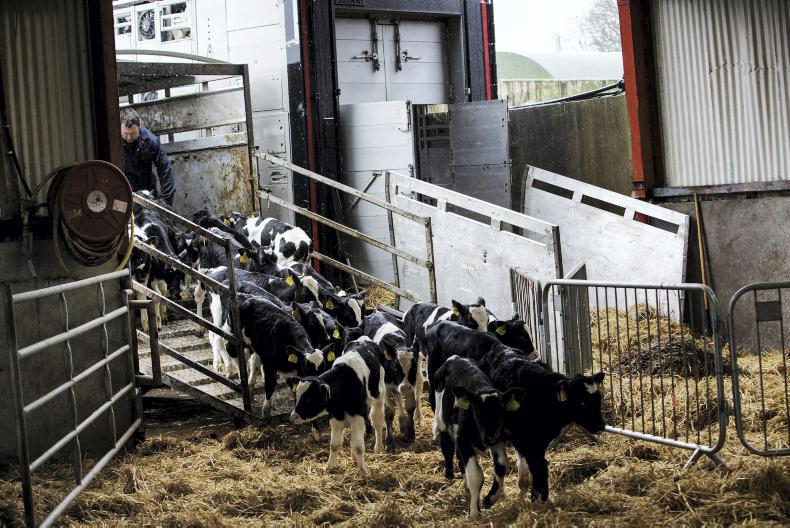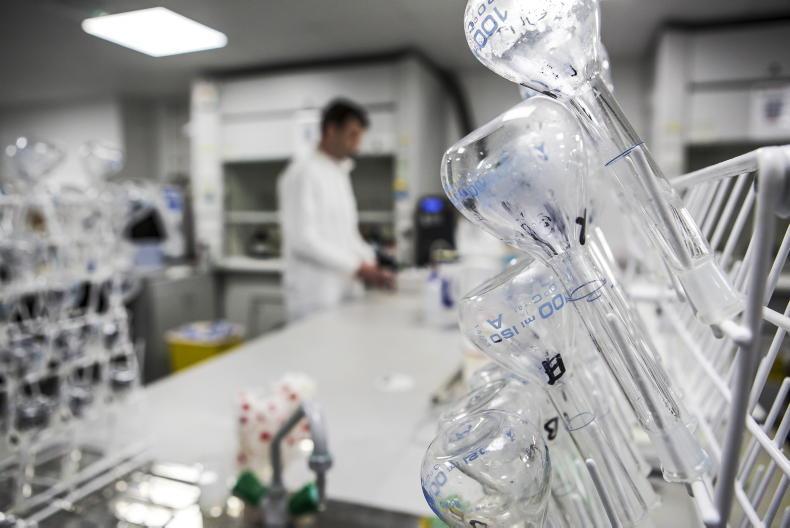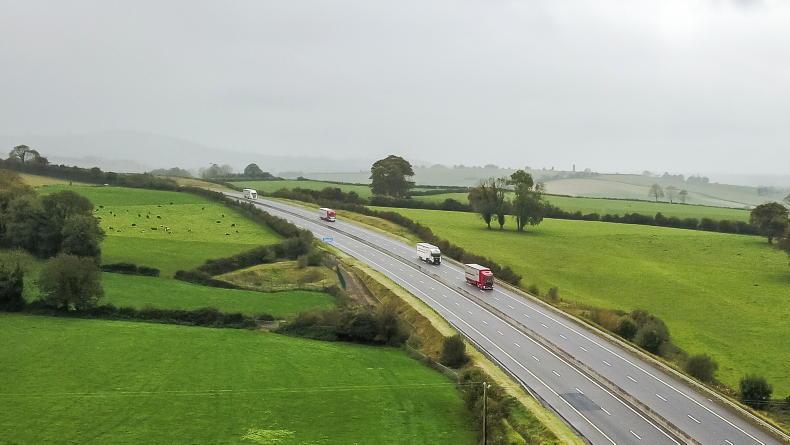The mortality rate in calves transported from Ireland to continental markets is extremely low at approximately 0.05%, a senior Department of Agriculture official has said.
Statements that calves are unwell for weeks following transport were not supported by evidence, according to director for animal welfare including transport and live exports at the Department of Agriculture Robert Doyle.
He told a meeting of European Parliament’s committee of inquiry on the protection of animals during transport that analysis of 2019 and 2020 journey logs confirmed the excellent welfare outcomes for calves transported from Ireland.
Scrutiny
“Intra-community trade in live animals rightly attracts a high level of scrutiny and debate.
“It is vital that this debate is based on objective evidence and on scientific research, rather than conducted around subjective opinion on social media,” Doyle said.
He pointed to a peer-reviewed study from Wageningen University in the Netherlands which demonstrated Irish calves have significantly lower mortality and perform better than other calves in the Dutch veal system.
Doyle attributed this to the management of calves on Irish farms, where the mortality rate of 3.8% is significantly lower than the EU average and to the control systems in place around exports.
Evidence
To address gaps in scientific knowledge around the transport of live animals, Irish authorities, led by Teagasc, have rolled out a €1.2m project that will span five years called MOOVE.
“The MOOVE project is using the latest wearable technologies and sensors to provide objective verifiable scientific data on the welfare of calves during transport,” Doyle said.
“This project is also examining innovative technologies including slow-release feeding compounds to provide energy to calves during transport.”
Doyle insisted the debate should not be around distance or time travelled, but rather verifiable data.
Support
His points were supported by Irish MEPs Billy Kelleher and Colm Markey.
“Sadly, there are some committee members who are simply ideologically opposed to the transport of live animals. That is their prerogative, but it is a position that fundamentally does not stand up to scientific scrutiny,” Kelleher said.
He said data gathered from the likes of the MOOVE project would allow for an objective assessment of what needs to be done into the future.
Markey said many of the points of concern raised in the committee represented a lack of compliance with existing regulation rather than the legislation being ineffective.
Read more
Friesian bull calf price drops another €5/head
Minister warns dairy farmers on calf welfare
The mortality rate in calves transported from Ireland to continental markets is extremely low at approximately 0.05%, a senior Department of Agriculture official has said.
Statements that calves are unwell for weeks following transport were not supported by evidence, according to director for animal welfare including transport and live exports at the Department of Agriculture Robert Doyle.
He told a meeting of European Parliament’s committee of inquiry on the protection of animals during transport that analysis of 2019 and 2020 journey logs confirmed the excellent welfare outcomes for calves transported from Ireland.
Scrutiny
“Intra-community trade in live animals rightly attracts a high level of scrutiny and debate.
“It is vital that this debate is based on objective evidence and on scientific research, rather than conducted around subjective opinion on social media,” Doyle said.
He pointed to a peer-reviewed study from Wageningen University in the Netherlands which demonstrated Irish calves have significantly lower mortality and perform better than other calves in the Dutch veal system.
Doyle attributed this to the management of calves on Irish farms, where the mortality rate of 3.8% is significantly lower than the EU average and to the control systems in place around exports.
Evidence
To address gaps in scientific knowledge around the transport of live animals, Irish authorities, led by Teagasc, have rolled out a €1.2m project that will span five years called MOOVE.
“The MOOVE project is using the latest wearable technologies and sensors to provide objective verifiable scientific data on the welfare of calves during transport,” Doyle said.
“This project is also examining innovative technologies including slow-release feeding compounds to provide energy to calves during transport.”
Doyle insisted the debate should not be around distance or time travelled, but rather verifiable data.
Support
His points were supported by Irish MEPs Billy Kelleher and Colm Markey.
“Sadly, there are some committee members who are simply ideologically opposed to the transport of live animals. That is their prerogative, but it is a position that fundamentally does not stand up to scientific scrutiny,” Kelleher said.
He said data gathered from the likes of the MOOVE project would allow for an objective assessment of what needs to be done into the future.
Markey said many of the points of concern raised in the committee represented a lack of compliance with existing regulation rather than the legislation being ineffective.
Read more
Friesian bull calf price drops another €5/head
Minister warns dairy farmers on calf welfare









SHARING OPTIONS